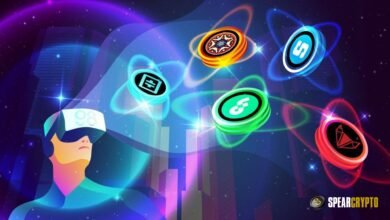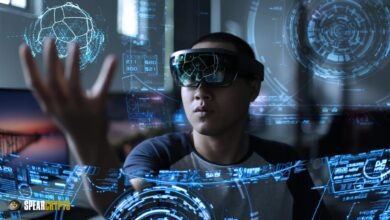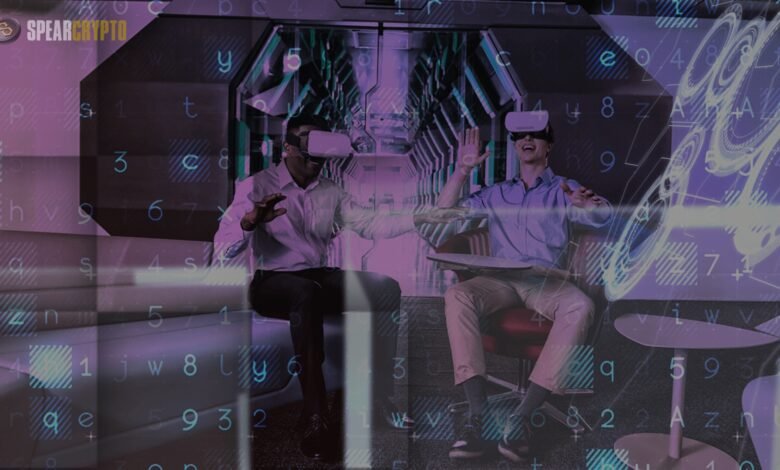
Metaverse Game Development: The metaverse concept has taken the tech world by storm, transforming it from a speculative idea into a rapidly growing digital ecosystem. While the metaverse encompasses various digital experiences, such as virtual reality (VR), augmented reality (AR), and other immersive environments, game development is at the forefront of this evolution. This article delves into the latest trends, challenges, and opportunities in metaverse game development as of 2024, offering insights into where this burgeoning industry is headed.
The Evolution of Metaverse Games
The term “metaverse” first gained widespread attention in the early 2020s, primarily fueled by VR and blockchain technology advancements. Games like “Fortnite,” “Roblox,” and “Minecraft” became early examples of proto-metaverses, offering players persistent, interactive worlds where they could socialize, create, and trade virtual goods.
By 2024, metaverse games have evolved into far more complex ecosystems. These games are no longer just about playing but about living in a digital world. Players can now own land, run businesses, and even participate in governance within these virtual spaces. This shift has created new opportunities for game developers but has also introduced significant challenges.
Current Trends in Metaverse Game Development
Interoperability and Cross-Platform Experiences
One of the most significant trends in metaverse game development is the push for interoperability. Players want the ability to move seamlessly between different metaverse environments, carrying their digital assets, identities, and experiences with them. This trend has led to cross-platform experiences, where games are not confined to a single device or operating system. Instead, they can be accessed via VR headsets, consoles, PCs, and even mobile devices.
The challenge here lies in standardizing the underlying technologies that make interoperability possible. Developers are working on common protocols and standards, such as the Open Metaverse Interoperability Group (OMIG), to ensure that different metaverse platforms can communicate and share data efficiently.
Decentralization and Blockchain Integration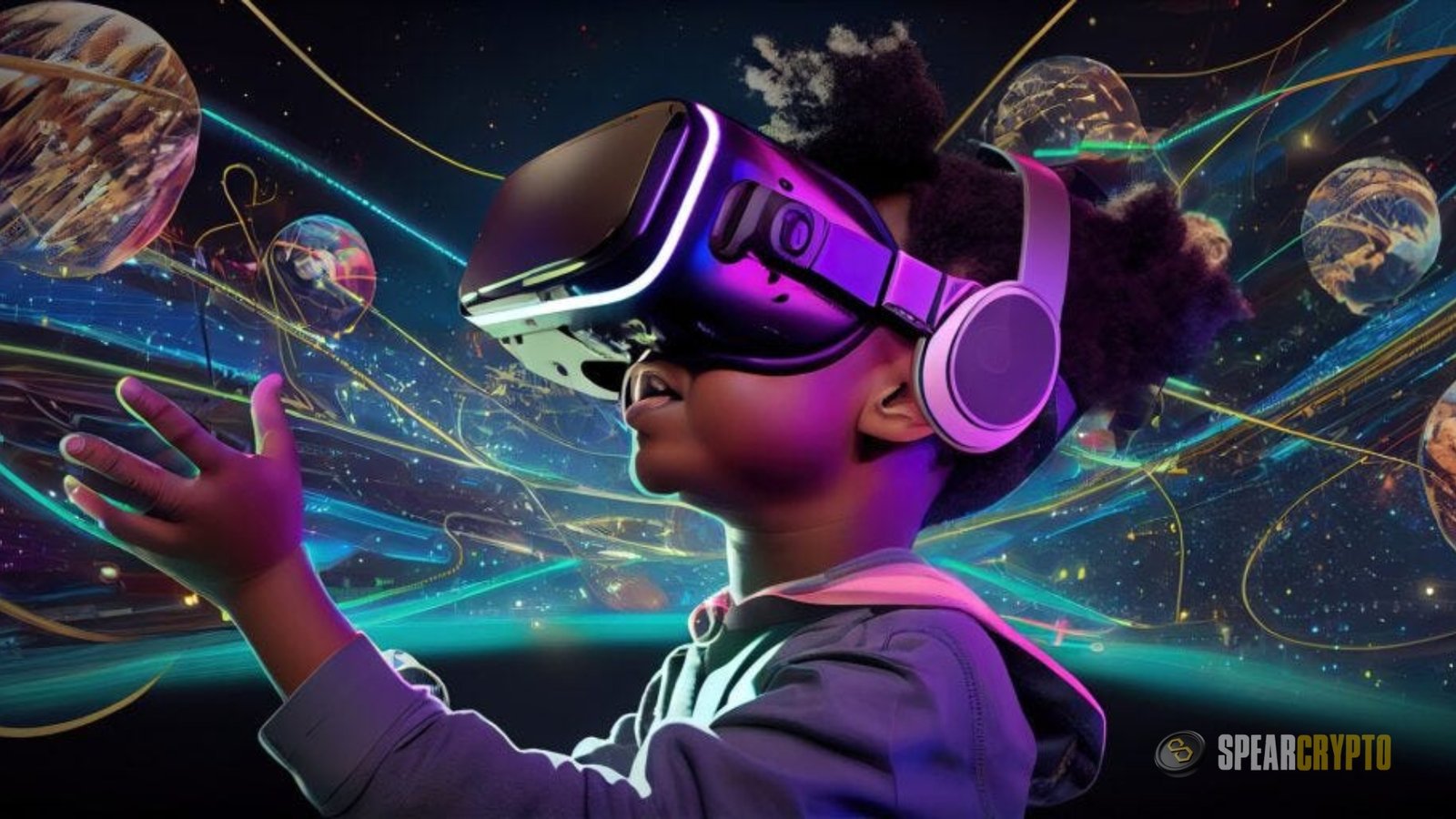
Blockchain technology has become integral to the development of decentralized metaverse games. These games often use blockchain to manage in-game assets, currencies, and governance. Non-fungible tokens (NFTs) have been particularly influential, allowing players to own unique digital items that can be traded, sold, or used across different games.
Decentralization also extends to how games are developed and managed. In some metaverse games, players have a say in the game’s direction through decentralized autonomous organizations (DAOs). This shift towards community-driven development is changing the traditional developer-player relationship, making it more collaborative.
Social and Economic Systems
Metaverse games are increasingly focusing on creating complex social and economic systems. These games are not just about playing but about creating entire societies. Players can start businesses, trade goods, and earn a living within these virtual worlds. The rise of play-to-earn (P2E) models has allowed players to monetize their time and effort in the game, blurring the lines between work and play.
However, building these systems is incredibly challenging. Developers must balance the in-game economy to prevent inflation, ensure meaningful social interactions, and create mechanisms to handle disputes and governance within the game.
AI and Machine Learning Integration
Artificial intelligence (AI) and machine learning are crucial in metaverse game development. AI is used to create more realistic and responsive non-player characters (NPCs), dynamic world-building, and personalized player experiences. Machine learning algorithms can analyze player behaviour to offer tailored content, adjust difficulty levels, and predict and prevent toxic behaviour in online communities.
Additionally, AI-driven procedural generation enables developers to create vast, detailed worlds with minimal manual effort. This technology is essential for maintaining the scalability of metaverse environments, which often consist of millions of unique objects and environments.
Enhanced Immersion Through VR and AR
Immersion is a crucial aspect of metaverse games, and VR and AR technologies are at the heart of this experience. Advances in VR headsets, such as improved resolution, more expansive fields of view, and more comfortable designs, make it easier for players to spend extended periods in virtual worlds. AR, conversely, is bringing the metaverse into the real world, allowing players to interact with digital elements in their physical environment.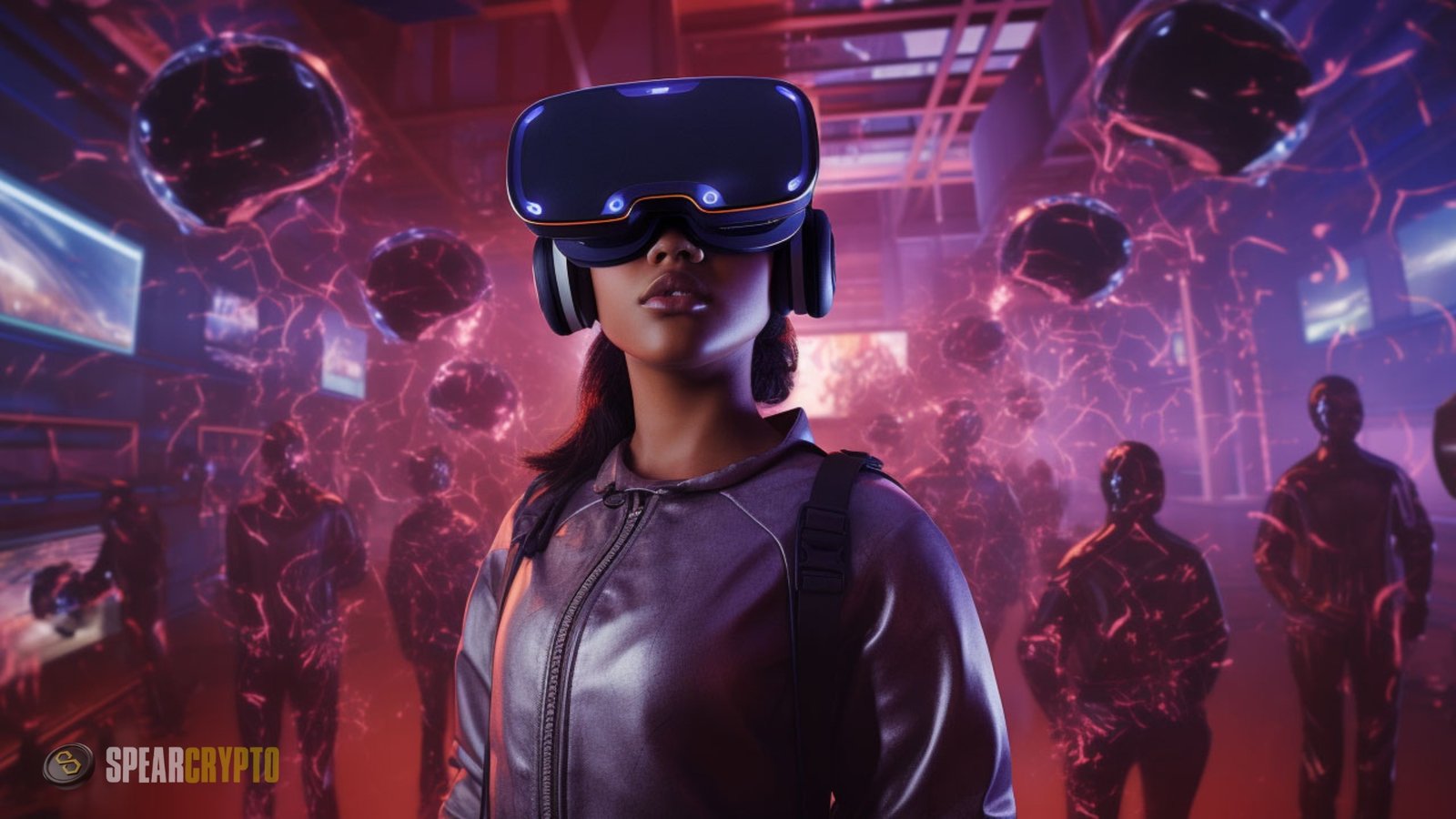
Integrating haptic feedback and motion tracking further enhances immersion, allowing players to feel and interact with their virtual surroundings naturally. As these technologies evolve, the line between the physical and digital worlds will blur even further.
Challenges in Metaverse Game Development
While the potential of Metaverse Game Development is immense, developers face several significant challenges.
Scalability
As metaverse games grow in popularity, scalability becomes a significant issue. These games require massive computational power to support millions of players interacting in real-time. Developers must ensure that their servers can handle the load without compromising performance. Additionally, they need to manage the vast amounts of data generated by player interactions, which can strain storage and processing capabilities.
Cloud computing and edge computing are emerging as solutions to these challenges. By distributing computing resources across multiple locations, developers can reduce latency and improve the player experience. However, implementing these technologies is complex and requires significant investment.
Security and Privacy
Security and privacy are paramount in metaverse games, especially given the value of in-game assets and players’ data. Hackers and malicious actors constantly target these environments, seeking to exploit vulnerabilities for financial gain. Developers must implement robust security measures to protect their games and players, including encryption, secure authentication, and regular security audits.
Privacy is another concern, as metaverse games often collect vast amounts of data about players, including their behaviour, preferences, and even biometric information. Developers must navigate the complex landscape of data privacy regulations, such as the General Data Protection Regulation (GDPR) in Europe, to ensure that they comply with legal requirements while offering a personalized gaming experience.
Monetization and Economic Balance
Monetizing metaverse games is a delicate balancing act. While microtransactions, NFTs, and subscription models offer revenue streams, developers must avoid creating pay-to-win environments that can alienate players. Additionally, they must maintain the economic balance within the game to prevent inflation or deflation of in-game currencies and assets.
Developers are experimenting with various monetization models, including play-to-earn, where players can earn real-world money through in-game activities. However, these models require careful management to ensure that they remain sustainable and do not lead to economic instability within the game.
Ethical Considerations
The rise of the metaverse brings with it a host of ethical considerations. Issues such as digital addiction, the impact of virtual environments on mental health, and the potential for exploitation in play-to-earn models are all areas of concern. Developers must proactively address these issues, implementing features that promote healthy gaming habits and protect vulnerable players.
Metaverse Game Development: Moreover, creating virtual economies and societies within metaverse games raises questions about fairness and equity. Developers must ensure that their games do not perpetuate real-world inequalities or create new forms of exploitation. This requires thoughtful design and a commitment to ethical principles in game development.
Opportunities in Metaverse Game Development
Despite the challenges, the metaverse presents numerous opportunities for game developers.
New Revenue Streams
The metaverse offers developers new and diverse revenue streams beyond traditional game sales. The sale of virtual real estate, NFTs, and in-game assets can generate significant income. Additionally, brands are increasingly interested in advertising and establishing a presence within metaverse games, offering developers new partnership opportunities.
Subscription models and premium memberships offer steady revenue, providing players with exclusive content, features, or experiences. As the metaverse continues to grow, the potential for monetization will only increase, offering developers more ways to profit from their creations.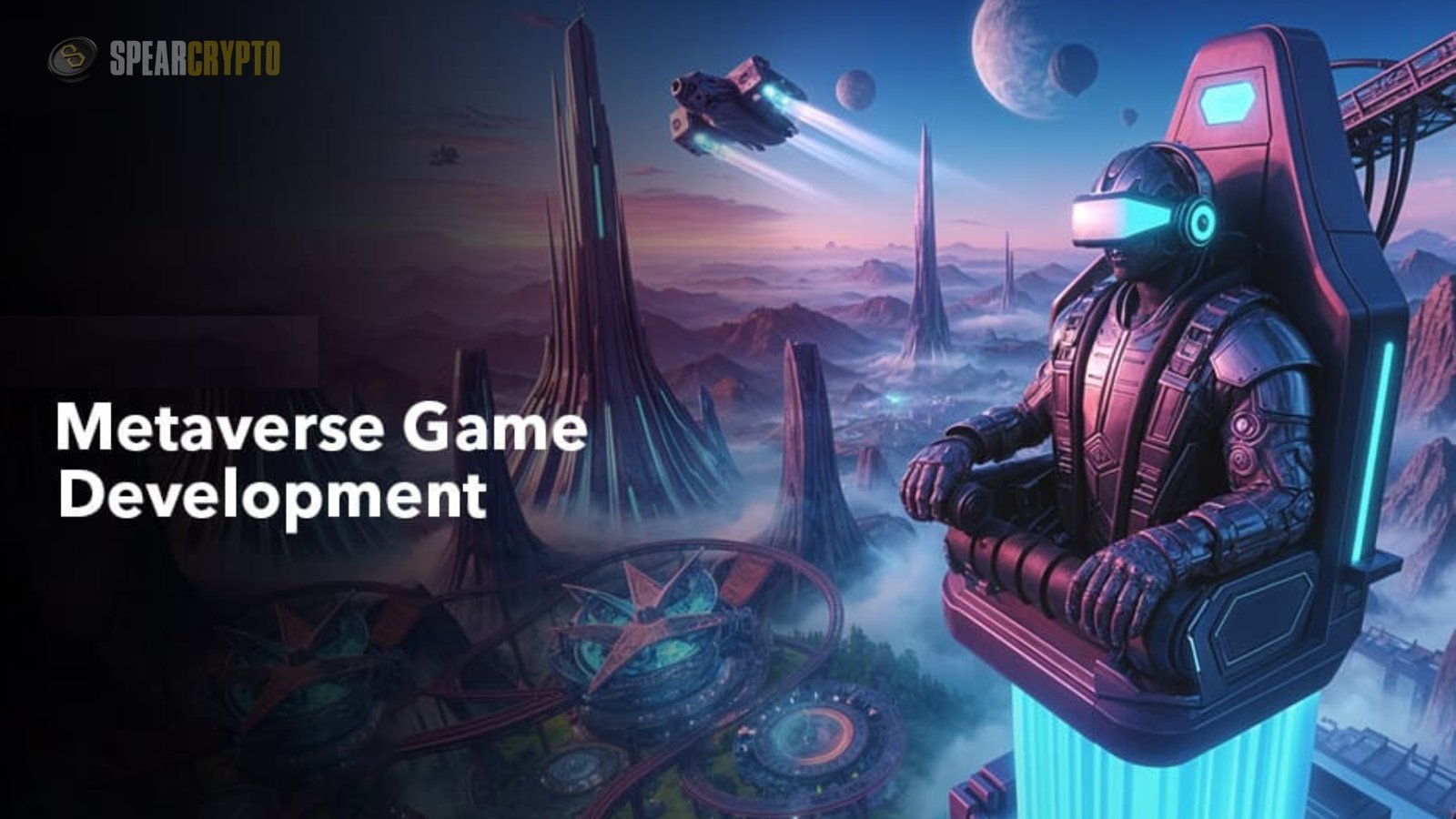
Innovation in Game Design
The metaverse encourages innovation in game design, pushing developers to think beyond traditional game mechanics. Integrating VR, AR, and AI technologies allows for creating entirely new gameplay experiences. Developers can experiment with persistent worlds, player-driven narratives, and dynamic, evolving environments that change based on player interactions.
This focus on innovation is attracting a new generation of game designers and developers who are eager to explore the metaverse’s creative possibilities. The result is a more diverse and vibrant gaming ecosystem that offers players unique and engaging experiences.
Community Engagement and Co-Creation
The metaverse is inherently social, and developers have the opportunity to engage with their communities in new and meaningful ways. By involving players in the development process, whether through feedback, content creation, or governance, developers can foster a sense of ownership and loyalty among their player base.
Co-creation is becoming essential to metaverse game development, with players contributing to the game’s world, story, and economy. This collaborative approach not only enhances the player experience but also allows developers to tap into the creativity and passion of their community.
Cross-Industry Collaboration
The metaverse is not just the domain of game developers; it attracts interest from various industries, including entertainment, fashion, and real estate. This cross-industry collaboration opens up new opportunities for game developers to work with brands and organizations outside the traditional gaming sector.
For example, fashion brands explore virtual clothing lines and digital fashion shows within metaverse games, while real estate companies are interested in virtual property development and sales. These collaborations can lead to innovative new products and services, expanding the reach and influence of metaverse games.
Educational and Training Applications
Beyond entertainment, the metaverse has significant potential in education and training. Developers can create immersive learning environments where players can acquire new skills, conduct simulations, or explore historical events in a virtual setting. These applications have already succeeded in medicine, where VR simulations are used for surgical training and corporate training programs.
Metaverse Game Development: As the metaverse evolves, the demand for educational and training experiences will likely grow, offering developers new markets and opportunities. Developers can create engaging and impactful experiences beyond traditional gaming by combining entertainment with education.
Future Outlook
The future of metaverse game development is bright, but it has challenges. As developers continue to push the boundaries of what is possible in digital worlds, they must navigate the complex landscape of technology, ethics, and economics. However, those who can successfully overcome these challenges will find themselves at the forefront of one of the most exciting and dynamic industries of the 21st century.
The metaverse is still in its early stages, and its full potential is yet to be realized. As technology advances and player expectations evolve, the opportunities for innovation and creativity in metaverse game development will only expand. Developers who embrace this new frontier and stay ahead of the trends will play a pivotal role in shaping the future of digital experiences.
In conclusion, metaverse game development is a rapidly evolving field with immense opportunities and significant challenges. As we move into the digital age, the metaverse will continue to grow and transform, offering new possibilities for game developers and players alike. The key to success in this exciting new world lies in innovation, collaboration, and a commitment to creating engaging and meaningful experiences.






